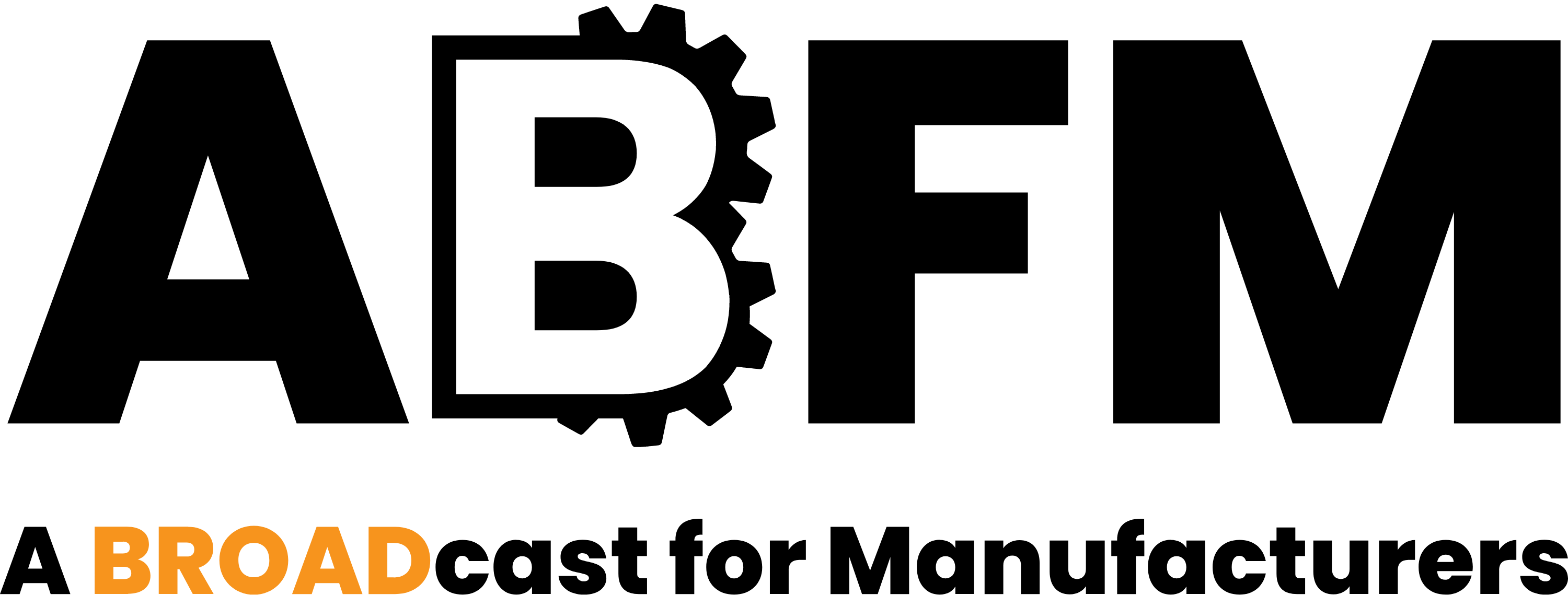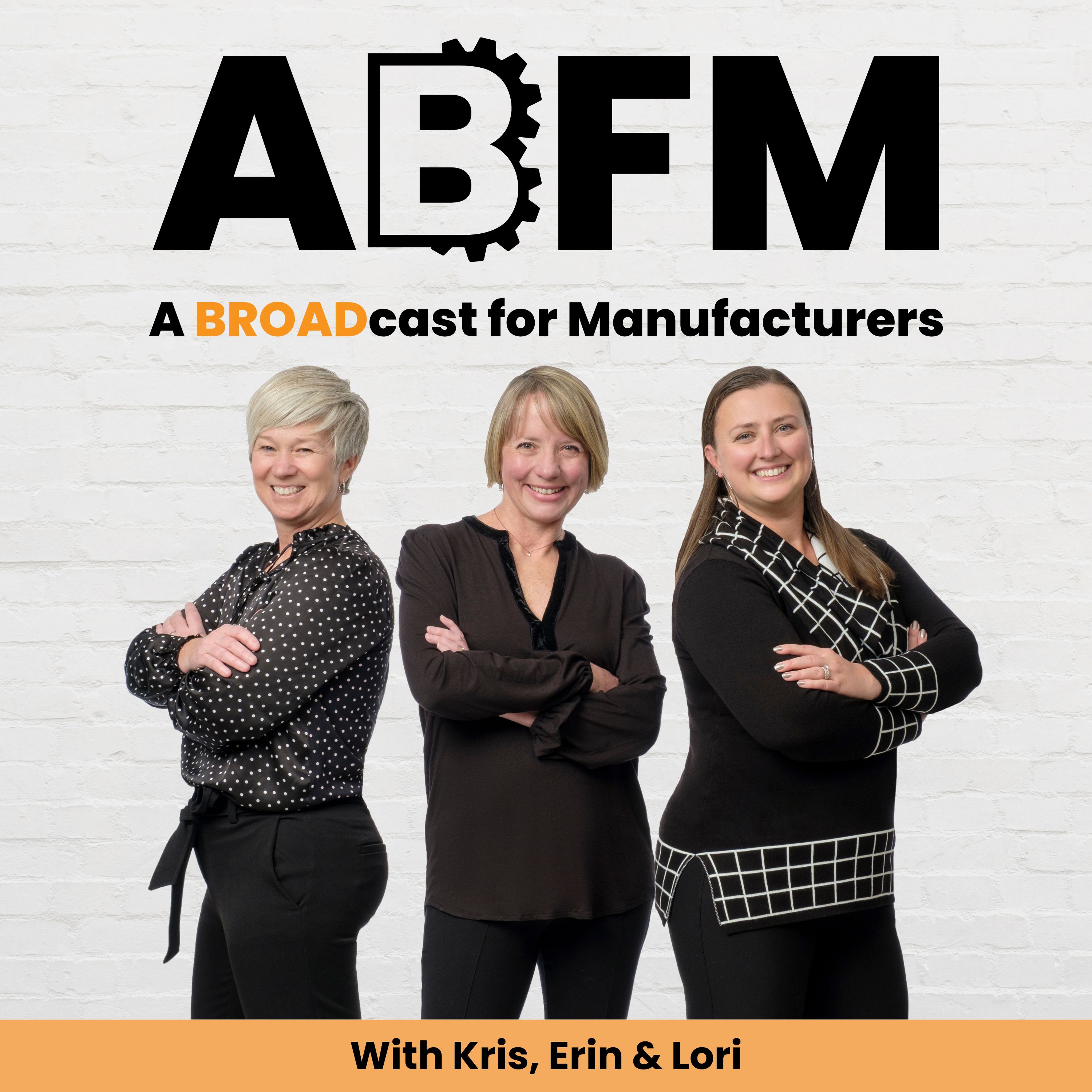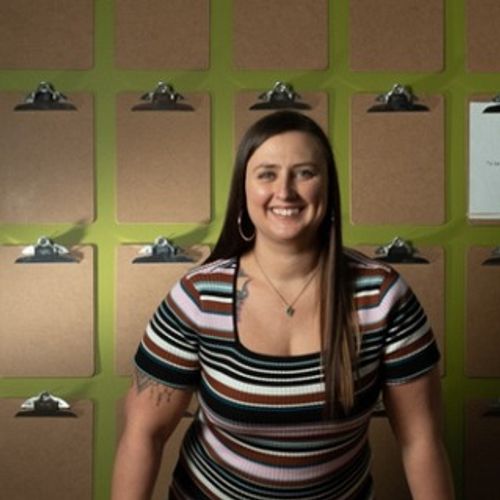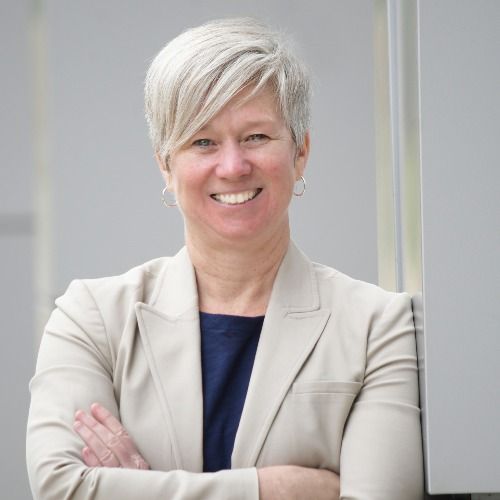Episode 16
16: Let's Talk About Demographic Inversion- with Jamie Irvine
Meet Jamie:
Jamie Irvine is the founder and host of the heavy-duty parts report. He is also a sales and marketing consultant that specializes in working with heavy-duty parts manufacturers and distributors. He's like the Joe Rogan of truck parts.
Kris: Jamie, I'm curious if you can share with the audience something interesting about you that they might not know.
Jamie: Well, there are a couple of things. But one thing is I've been a podcast host really since 2017. But the heavy-duty parts report didn't start until 2019. So I had a whole other podcasting journey. Before that, I did 150 episodes. And it was just a very broad-based subject around the business. And I pivoted into the heavy-duty parts report. And so when I made that choice to pivot, it really was a case where nobody had not many people listen to the first show I had. And, and that's okay because I learned how to podcast and nobody was listening. So that was good. They didn't hear all my foibles. But then when I was able to start the heavy-duty parts report, because of all that experience, I was able to really hit the ground running. And I learned a lot from that. And that was great because the show took off and we've done really, really well. But I always hoped that it would lead to something more. And so just recently, I was invited to be a co-host on a nationally syndicated radio show on TNC radio called Mind your trucking business. And it is a brand new show. We've just published I think we've done 11 weeks now. And it goes live on TNC Radio dot live at 6 pm Central on Thursday evenings and then it's read and rebroadcasted as a podcast. So to actually be on the radio from those original days when I launched a podcast and I live literally had to Google. What is a podcast? I've come a long way.
Kris: What's the biggest challenge facing manufacturers today?
Jamie: I think, you know, you probably wouldn't be surprised if I said supply chain issues. But I actually don't think that's the biggest problem. I think that's an acute problem that we're having right now. But I actually think the larger more overarching problem is something called a demographic inversion. And I did some research on this recently, in 2019, there was a global census. And at that time, there were just over 700 million people globally over the age of 65. And there were only 680 million children under the age of five. Okay. Okay, so that doesn't sound like say, hey, it's pretty balanced, right the at the beginning of life and the end of life, those numbers are balanced. But what's going to happen between now and 2050, that's the part that got my attention, the gap is going to double meaning in by 2050, that gap is going to get twice as big. And there are going to be way more people over the age of 65 than there are children under the age of five. And I don't know if you know this, but even if we all got to work on the problem tonight, with our spouses, let's face it, we're not going to be able to solve the demographic issue for about 20 years, because it takes real roughly 20 years to get a child to adulthood and in the workforce. So this is a problem that we might have been able to solve in, you know, like 2000 to 2005. But it's too late now the dye has been cast and the trend has been set, the birth rates are not going to change. So this demographic inversion is creating a condition where it's not that there won't be young people. But the battleground for retaining and or sorry for recruiting a rather young talent is going to intensify year over year as we move forward. And then there's this other trend whereby 2030, all of the baby boomers will pretty much be wrapping up their careers. So one of the largest groups of people on the planet will be completely exiting the workforce. And there are just not enough Gen Xers to cover the spread between all of the baby boomers leaving so. So even once the millennials are now getting into senior positions of leadership within their companies, even once they're in full swing in their career, we still have this downward trend on labor. And so it's rather surprising, but the truth of the matter is, in the second half of this century, the biggest problem facing humans will be a lack of people, not overpopulation like we once thought back in the 70s and 80s. And that is something that is going to cause most manufacturers, a lot of problems, and the competition for young talent is going to be so fearful. So if you're in vocational trade, like trucking, or if you're manufacturing in an industrial sector, you're not just competing with other manufacturers in that sector. You're competing with tech, pharma, and other sectors that are much more appealing to young people than often the industries we work in like the trucking industry. So we've got a real uphill battle in the next 10, 20, 30 years.
And so much more…
Connect with Jamie
Other Resources:
Connect with the broads!
Connect with Erin on LinkedIn and visit http://www.earthlinginteractive.com for web-based solutions to your complex business problems!
Connect with Lori on LinkedIn and visit www.keystoneclick.com for your strategic digital marketing needs!
Connect with Kris on LinkedIn and visit www.genalpha.com for OEM and aftermarket digital solutions!
Transcript
Pat Lori Highby Chris Harrington and Aaron Courtney, three broads, bringing new stories and strategies exploring manufacturing topics that
Lori Highby:How's it going? Do you dear air? Did you get a haircut? Oh, a different.
Erin:Yeah. I love it. I have such an eye. Yes. Thank you for noticing. Well wait, you
Kris:need to describe it for everybody listening because they won't be able to see her haircut.
Erin:I'm calling Shaggy. I'm trying to roll shaggy action. I saw I saw this. The, you know, I scrolled. I was scrolling
Kris:on the phone. Yeah, find inspiration, right. That's every woman has to find inspiration.
Erin:Just, you know, the dumb thing. And then it said, haircuts for over 50. And I was like, Well, check that out. I love it. They were pretty good.
Lori Highby:So it looks it looks wonderful.
Kris:Looks 150 The new 20.
Erin:I would love to hear that. Yes, except without all of the procreating pressure. So it's way better. Oh, yeah.
Kris:Amen to that. Well, I think this is definitely the time. It's Jamie. Today, Hi, Jamie. We're so glad to have you here.
Unknown:I'm happy to be here. And I wish that hairstyle was an issue for me, because I'm losing my hair so fast. I know that in a very short few
Kris:Maybe for the hairstyles over 50, you know, no hair,
Unknown:zero, numbers zero clipper. Got a little bit of hair, though. So I got a few more years still where I can still style it. And, you know, try
Kris:All right, well, for our audience, let me just share a little bit about Jamie, our guest today. So Jamie Irvine is the host of the heavy duty
Kris:delivering a lot of benefit to the industry. So, Jamie, I'm curious if you can share with the audience something interesting about you that they might
Unknown:Well, there's there's a couple of things. But one thing is I've been a podcast host really since 2017. But the heavy duty parts report
Unknown:learned how to podcast and nobody was listening. So that was good. They didn't hear all my foibles. But then when I was able to start the heavy
Unknown:called Mind your trucking business. And it is a brand new show. We've just published I think we've done 11 weeks now. And it goes live on TNC Radio
Kris:Congratulations. Okay, ladies, we have something to aspire to. Awesome.
Erin:Look out Joe Rogan.
Unknown:Actually, you know, it's so funny, I never I never, I've never said that about myself. But I actually had somebody the other day say,
Erin:it put that as the headline in our show notes.
Lori Highby:Yes, we love it. That's great. All right.
Kris:So let's jump into our questions for today. And we're gonna start with, you know, I'm curious what you think, from your opinion, and all your
Unknown:I think, you know, you probably wouldn't be surprised if I said supply chain issues. But I actually don't think that's the biggest problem.
Unknown:the age of five. Okay. Okay, so that doesn't sound like say, hey, it's pretty balanced, right at the at the beginning of life and the end of life,
Unknown:all got to work on the problem tonight, with our spouses, let's face it, we're not going to be able to solve the demographic issue for about 20
Unknown:not that there won't be young people. But the the battleground for retaining and or sorry for recruiting rather young talent is going to
Unknown:once the millennials who are now getting into senior positions of leadership within their companies, even once they're in full swing in their
Unknown:the competition for young talent is going to be so fear. So if you're in a vocational trade, like trucking or if you're manufacturing in an industrial
Kris:wow. I never heard anybody talk about it that way. And I've always been fascinated by the generational shift. But I didn't know the numbers
Kris:construction trades. So we have the problem now. Oh, yeah. it and we've we hear that we've had conversations regarding that as well. So I
Unknown:built I built a contracting business from oh nine to 2016. And I sold it in 2016 to a competitor. But they're there, they're aging out, you
Unknown:a big problem. And then the other the other issue, just related to that is over the last 2030, let's say 40 years, when when when families were
Unknown:industrial vocational type sectors where we're just not considered by most families a viable option for their children. It's a big problem. It is,
Erin:oh, you really lay the facts bear for us, like Chris said, and, you know, because we've heard the second part of it, that it's just not
Erin:what's how? Give us some help here, Jamie? Well,
Unknown:I'm in the same boat, my daughter just turned 18. And my wife and I, we love our nieces and nephews, because their sons and daughters, you
Unknown:yes, tech that we're going to talk about technology in a minute. But systems are so critical for your operating the way that you operate your
Unknown:properly trained, but you can still systemize the positions, you can still systemize the business, you start from the bottom up. And you've got to get
Unknown:roughly 30 to 60% less to accept an order via e commerce than it does to accept it for you know, through the traditional method of answering the
Unknown:higher value things. And I really believe that the battleground here in the next 1020 years is going to be all about which supplier makes their
Unknown:going to be like, Wow, I never really realized that being in the truck parts business could be so technologically advanced. But in addition to
Kris:Right? manufactures. I hope you're listening. That was gold. Gold.
Lori Highby:I mean, the best thing that anyone could do is make it easy for people to buy from you. And I think leveraging technology is the best
Kris:Absolutely. It is for them to produce. Yeah, yeah, you're good. If we cannot, if we can even skip the bind, it just happens. And they're just
Unknown:I was just gonna say like in the truck parts world we have seen and Chris, you can back this data up, because we work closely together. But
Unknown:easy. Well, what else can we buy? Right? And so even as even our manufacturing clients are finding that that their distributors are like,
Lori Highby:Yeah. Love that. So obviously, technology is super important. Digital transformation. We talk about this quite often on this show. But is
Unknown:No, because you know, as my mentors taught me many years ago, the business is a very social activity, it's still always going to be about
Unknown:profession. And so she starts school, literally, today, when I get done here, I'm helping her get logged into her first course, when she's done
Unknown:what some long held old ideas, like I want to hear all the time is how, you know, you just got to put the hours in and you just gotta like hustle and
Unknown:70s. So this is a big generational gap. And you've got to take a look at your company from through their perspective and their eyes. That's not an
Erin:Yeah, yeah. I think Chris is Chris's great example, I, we've had many deep conversations about, you know, how painful it is to let go of the
Erin:ways of thinking and doing things really gets to that question that the you had Laurie, like, what else besides technology, and it's just like, have an
Unknown:I'd like to give you a bit of an example of how this can play out. So one of my clients is a manufacturer, and they implemented an ecommerce
Unknown:a distributor who literally shares a parking lot with us. And the old procurement manager would walk over and chat with everybody and would place
Unknown:experience. So they looked at it through a different lens. And they said, I don't have time to go over there and waste in that rapport relationship
Unknown:actually spent time getting to know many of the employees at the manufacturer through social media, and developed a relationship outside of
Unknown:relationship with several key people, and they have a relationship outside of business hours. I just thought that was a fascinating shift in behavior.
Unknown:Absolutely.
Erin:That's a clip, let's take that story. And put that is such an interesting story. And you can just read that in so many different ways,
Kris:Love it. Yeah, no, and I appreciate you sharing that story as well. Because one of the things that, you know, we want to do as a result of
Kris:going to pick up up some good, some good information here.
Unknown:But here's the thing, if that manufacturer had not modified their approach, and built their brand in such a way, that their employees were
Unknown:the road, who had all of those things in place? So they could have just as easily lost that customer who's literally sharing a parking lot
Kris:with them? Yeah. Yeah. You know, I think if more manufacturing companies would walk down to their purchasing area and talk to the, I think
Kris:what they're doing. What sites are they using? good insight, for sure.
Unknown:And I like just imagine if the four of us were the leadership group of that manufacturer, and we lost that customer. What would we have
Unknown:experience. And so they're just, they're just trying to keep their head afloat. Using the technology and using these other means of communicating
Unknown:different way.
Kris:Sure. Yeah. Yeah. And it ties back into some of the things we were talking about earlier. So many people are having to do more with less,
Kris:first Aaron Can you share with Share?
Erin:What I'm excited to share this one. So I use a transcription, I need transcription occasionally for like your webinar or you do you know,
Erin:that back to you, which is just so helpful. And kind of just makes me excited about the future and what kinds of tools we'll have available to us
Unknown:Aaron, is there? Is there an API to zoom with otter?
Kris:Yes. Is there? Yeah, because
Lori Highby:that's what we use for the show. Yes, you just have
Erin:it, it feeds it right there,
Lori Highby:you know, the show automatically uploads to otter, and it's automatically transcribed. As soon as I close out the Zoom meeting, it's
Unknown:yeah, that's awesome For show notes. But also, as a consultant, I use the same thing. And then I transcribe all of my interactions with my
Erin:Perfect. And I think that that new outlining would be helpful for something like that, when you have so much content, and you need some
Lori Highby:Make sure to tag them in the social media posts, then.
Erin:back atcha, what did you learn? Oh,
Kris:I just learned that there are these things that are called solar botanic trees. Have you guys heard of these? So they are they look like a
Kris:you know, it's interesting as we get into electric vehicles, and we get into solar energy, and all of the alternatives that, of course, we're
Kris:around as we go to parks as we go to different things wherever energy would be needed. And it's going to save a lot of energy on the grid. And of
Lori Highby:You know, I love diving into the research stuff. So horizon media published top trends report recently, where they're identifying
Lori Highby:minds. The midterms, any sort of social political unrest? So like, what's happening in Ukraine still, Roe vs. Wade? Decision decisions? And data
Erin:Do they do do they add some color to these things? Or is it just survey results? Do they kind of go Oh, yeah,
Lori Highby:there's I'll include a link to the full Trends report because then they go a little bit deeper into, into like, these were the key forces
Kris:thinking I'm gonna check it out, too. All right, Jamie, can you finish the sentence? I just learned that?
Unknown:Yeah, I just I just I knew the labor shortage was bad in the trucking industry. But I just learned that there was over 300,000 open
Unknown:industry. And what people don't realize is, is like, you don't need a four or six year degree to enter this industry and make above average income.
Kris:Yeah, great benefits of fun career. Let's fill those jobs. I mean, that's, that's a lot of people. So I hope you're listening.
Erin:Jamie's podcasts. If you're curious, and you want to learn more, that's a great place to get started.
Kris:Yeah. Perfect. Well, thank you, Jamie, we enjoyed you being here. Is there a place where people can reach you after the show if they're
Unknown:Well, we're very active on social but the best place to go is heavy duty parts. report.com. That's our home base. That's where all of our
Kris:Excellent. All right. Well, thank you again, and we'll see everybody next time.
Unknown:Thanks, ladies. My pleasure. Thank you.
Erin:Bye everyone.
Unknown:This wraps up today's broadcast. If you're looking to shake up the status quo at your organization, or just want to connect with these broads,




